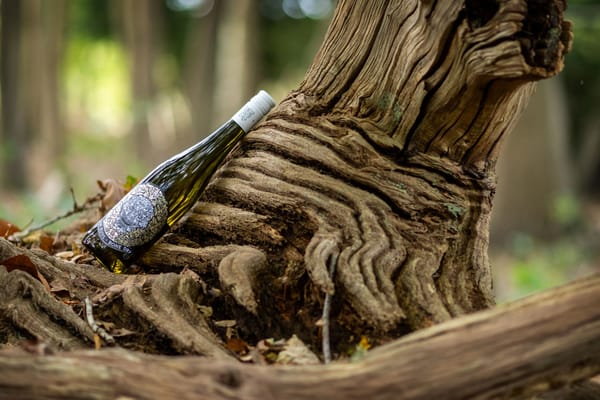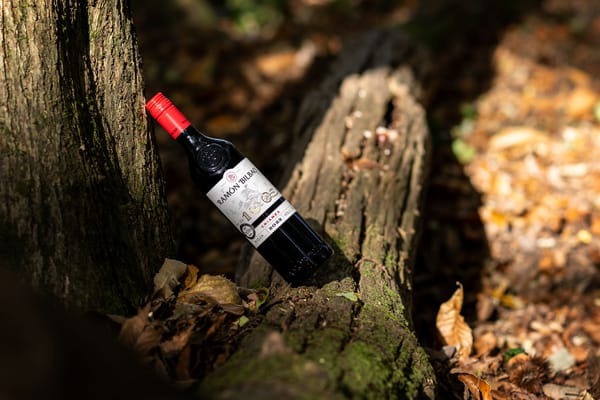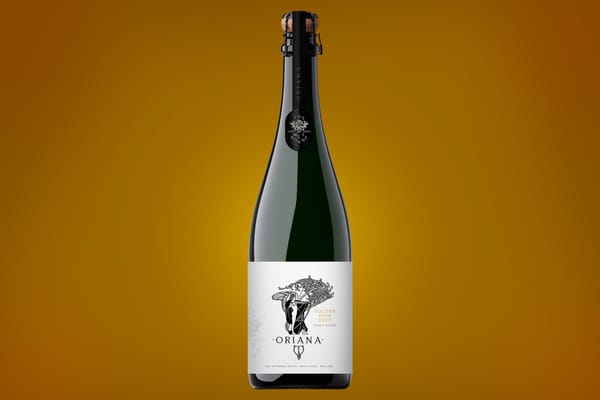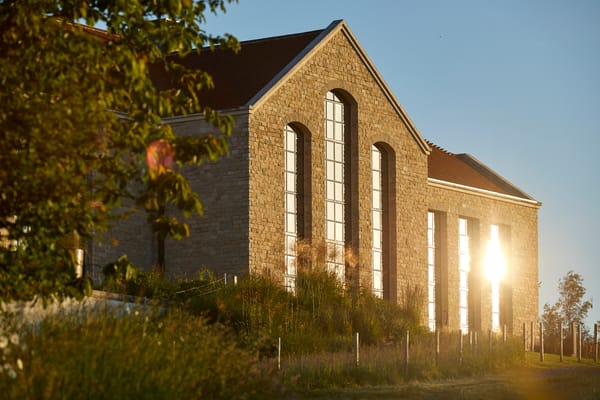Roebuck Estate - Refined Wines
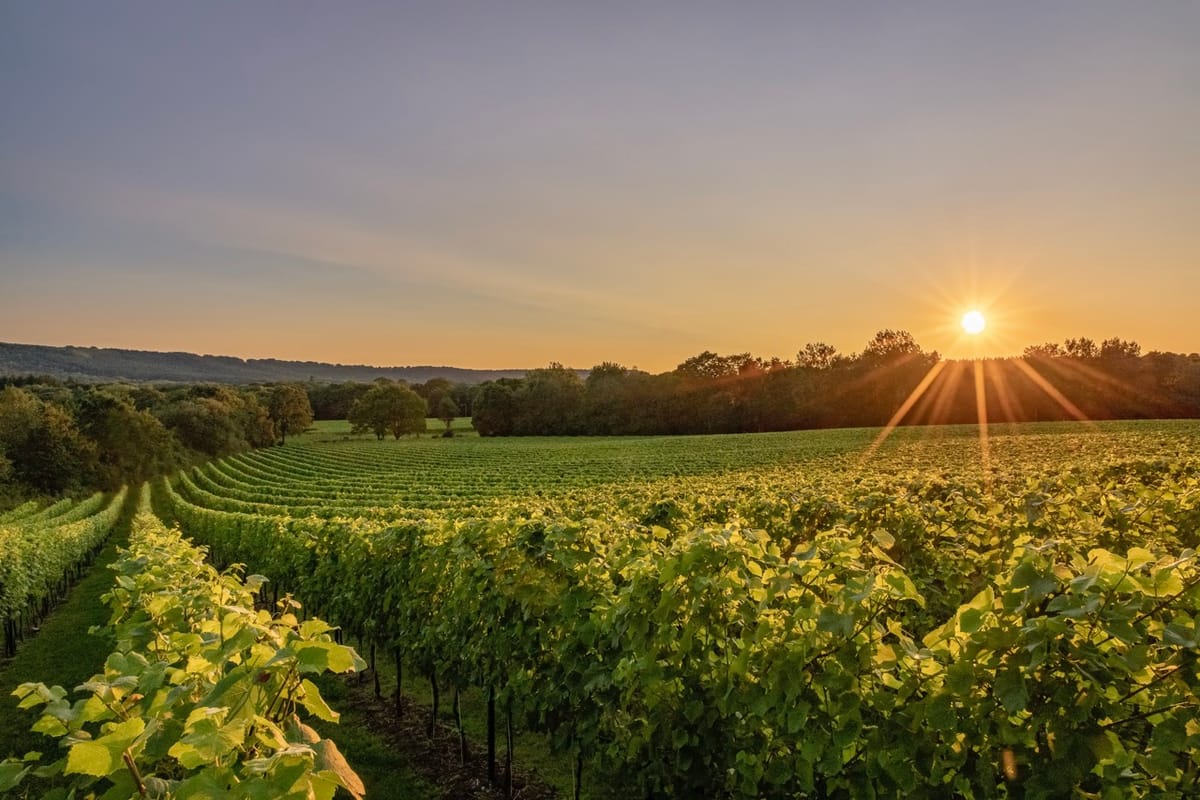
Viticulturist: Jake Wicks, Head of Viticulture
Year established: 2013, with our debut wine release in 2019
Hectares under vine: 62
Roebuck Estates was founded in 2013 by two friends and lifelong wine lovers who grew up in West Sussex but came to winemaking from outside the industry. Their journey began with the purchase of two established vineyards in West Sussex, followed by the acquisition of land for four additional sites across West Sussex, East Sussex and Kent, planted progressively between 2017 and 2022. From the outset, their ambition was clear: to produce premium, vintage English sparkling wine each year using the traditional method, while keeping their environmental footprint to a minimum.
All Roebuck Estates wines are made exclusively from estate-grown Chardonnay, Pinot Noir and Pinot Meunier. The debut release, the 2013 Classic Cuvée, appeared in 2019, and its successor, the 2014 Classic Cuvée, went on to win ‘Best in Show’ at the 2020 Decanter World Wine Awards. Today, Roebuck Estates’ wines can be found in leading restaurants, boutique wine merchants and independent retailers across the UK, and are exported to fifteen countries worldwide.
Roebuck has just unveiled the latest addition to its Classic Collection, the Classic Cuvée 2019. The 2019 growing season was marked by early budburst, steady flowering, and balanced ripening conditions across Roebuck’s vineyards. Cooler temperatures later in the season encouraged the development of complex fruit, underpinned by bright natural acidity, a combination that perfectly suited the house style.
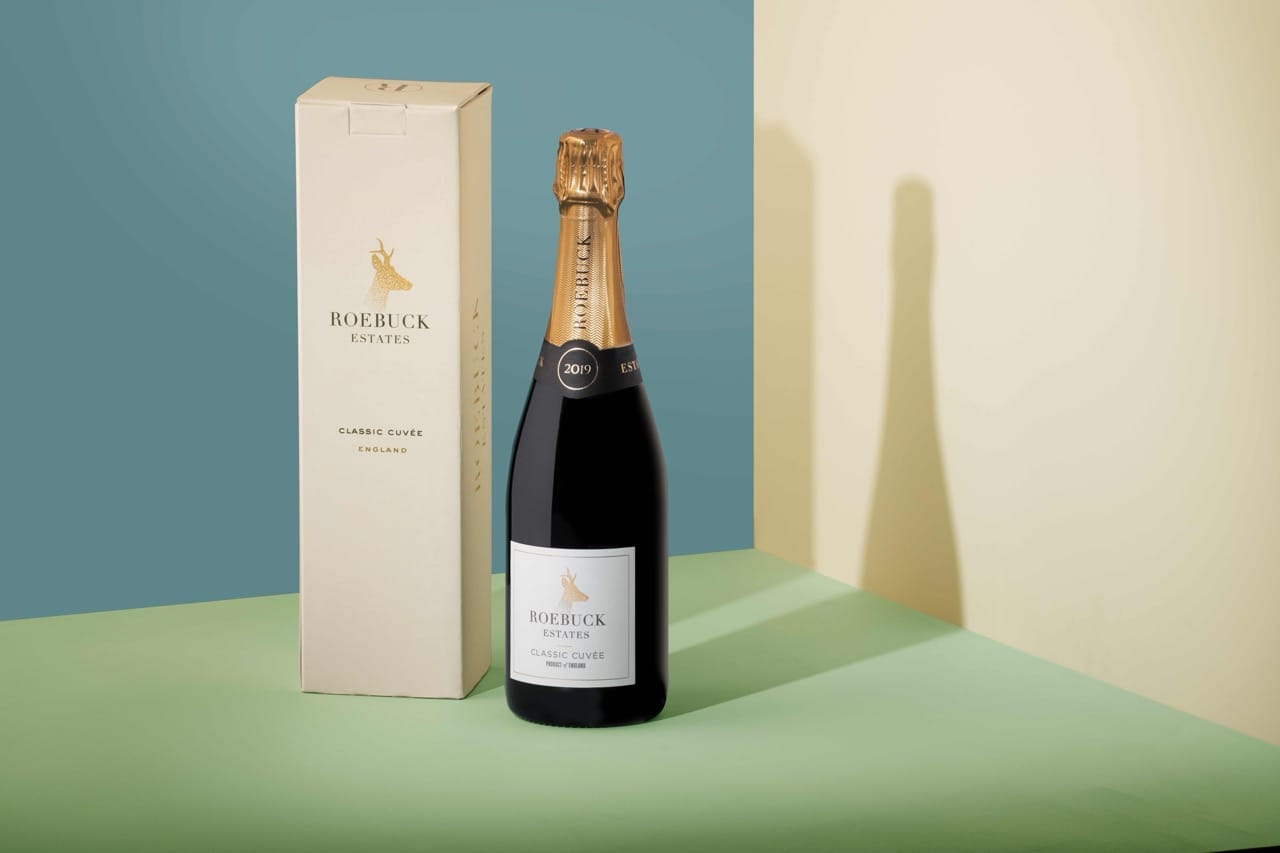
The blend for the 2019 Classic Cuvée consists of Pinot Noir (50%), Chardonnay (39%), and Pinot Meunier (11%). A small proportion, around 2%, was partially fermented in aged Burgundian oak barrels to enhance texture and complexity. Following fermentation, the wine spent a minimum of 48 months on lees and a further six months on cork ,before release. The resulting wine shows a richness and depth derived from the dominance of Pinot Noir, marking a stylistic departure from previous Chardonnay-led vintages.
Head of Viticulture Jake Wicks explains that while Roebuck’s Classic Cuvée is typically Chardonnay-dominant, “the 2019 vintage tells a different story. Much like in 2017, the Pinot Noir from our West Sussex sites outperformed the Chardonnay, leading to a blend with a higher proportion of Pinot Noir. This gives the wine superb structure and complexity, creating a richer style with greater depth of flavour.”
CEO Michael Kennedy adds that the estate’s growth and recognition over the past few years have been extraordinary. Roebuck was selected by Marks & Spencer to produce their own-label English sparkling wine and was the exclusive sparkling wine partner at the RHS Hampton Court Palace Garden Festival, further cementing its reputation among the leading names in English wine.
I recently spoke with Michael Kennedy, CEO of Roebuck Estates.
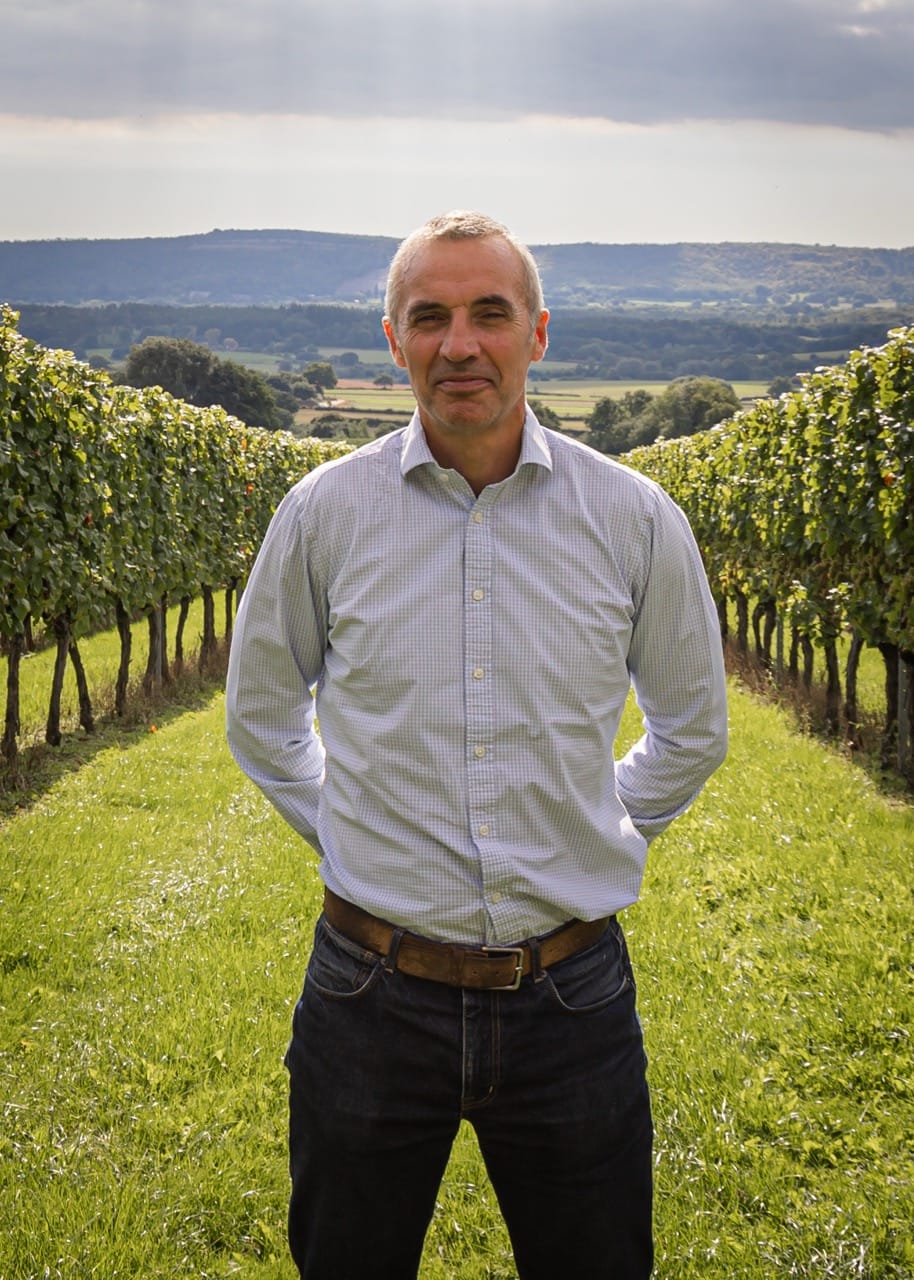
If your wine could tell a story, what would it say about this past year in the vineyard and winery?
The last year has been a positive story for Roebuck, with increased engagement and awareness driving further trial and enjoyment of our vintage English Sparkling Wines. In 2024, Roebuck grew 55% on 2023, which follows similar growth patterns in the previous two years, meaning that the business has tripled in size over the past three years.
We’re seeing strong repeat purchase which is exciting as it means that not only are people trying Roebuck in the first instance, but they’re also coming back for more, which demonstrates their enjoyment of the wine. Roebuck can be found in premium accounts throughout the UK, such as The Fat Duck, Mandarin Oriental, The Savoy, Liberty London and Harvey Nichols, and we’ve partnered with events such as the RHS Hampton Court Palace Garden Festival, and GLIDE at Battersea Power Station, continuing to introduce our vintage sparkling wines to new, and varied audiences.
Roebuck’s wines also received a total of eighteen awards in 2024, including a Gold at both the Decanter World Wine Awards and the International Wine & Spirits Competition for our 2018 Rosé de Noirs, and a Gold at both the Sommelier Wine Awards and the International Wine Challenge for our 2018 Classic Cuvée.
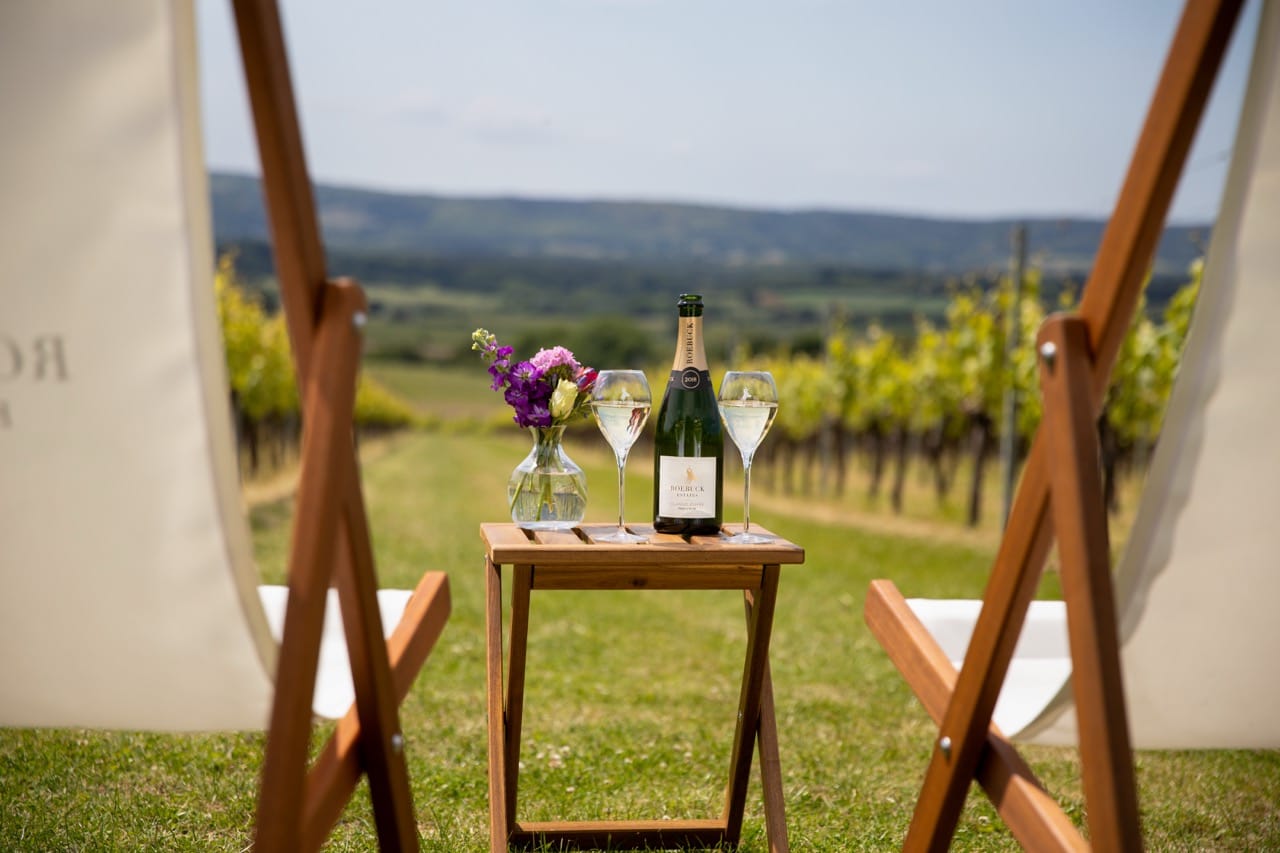
Successes and Challenges
Looking back, was there anything you wish you had done differently in the winemaking process? Why?
There’s not anything that I wish we had done differently; however, I will admit that I am always nervous when we blend. Not because I don’t think that we are going to blend brilliant wines, but that we are going to blend the right quantities.
Our wines age for a minimum of four years on lees so, what we harvested in 2025, we will bring to market in 2030 at the latest. When you are a new business and growing, it means that you have very little sales analysis to rely on.
Recently, we launched our Rare Expressions range, which is a special collection of limited edition vintage sparkling wines that showcase the finest expression of a particular place, grape variety, or moment in time. It now comprises two vintages:
- Rare Expressions No 19, named after Block 19 at our Roman Villa vineyard in West Sussex where the grapes for this wine are from. It has spent 84 months on lees and is a terrific wine. I just wish we had laid down three times as much of it back in 2015!
- Rare Expressions No96, which is a special wine elevated by time, having been generously aged in bottle for 96 months on lees before release. It’s currently served by the glass in prestigious settings including 1890 at The Savoy, and 67 Pall Mall.
What’s a mistake you’ve made in the vineyard or winery that turned into a valuable lesson?
We run the Roebuck Viticulture Academy where we bring a group of sommeliers into the vineyard three times a year to learn about our approach to viticulture. It is a mixture of classroom teaching with our Head of Viticulture and in-house Ecologist, as well as practical application in the vineyard.
As part of this, they are allocated a bay of vines to manage throughout the year. Unfortunately, a slight mix up with the viticulture team one year meant that, the day before the Academy were due to come to learn about pruning, the team pruned the entire vineyard! It led to a somewhat academic session in the practical part of the day; but taught us that you can never communicate enough when you have such a driven, professional in-house team.
Is there a wine you produced that you thought was a failure at first but later became a surprise success? What changed?
We haven’t had a wine that was a failure - but we have had one that was a bit of a surprise!
The second wine in the Roebuck Rare Expressions collection, Rare Expressions No 96, comes from the exceptional 2014 vintage, so we were very excited to try it. After 84 months on lees, we set up a special tasting for the whole company and, whilst tasting great, we all felt that it needed a bit more time to reach its full potential.
So, we repeated the tasting 12 months later and the result this time absolutely lived up to the hype! It just goes to show that the ageing process of the wines on lees is not linear - in fact it’s anything but! As the saying goes, it is all in the timing!
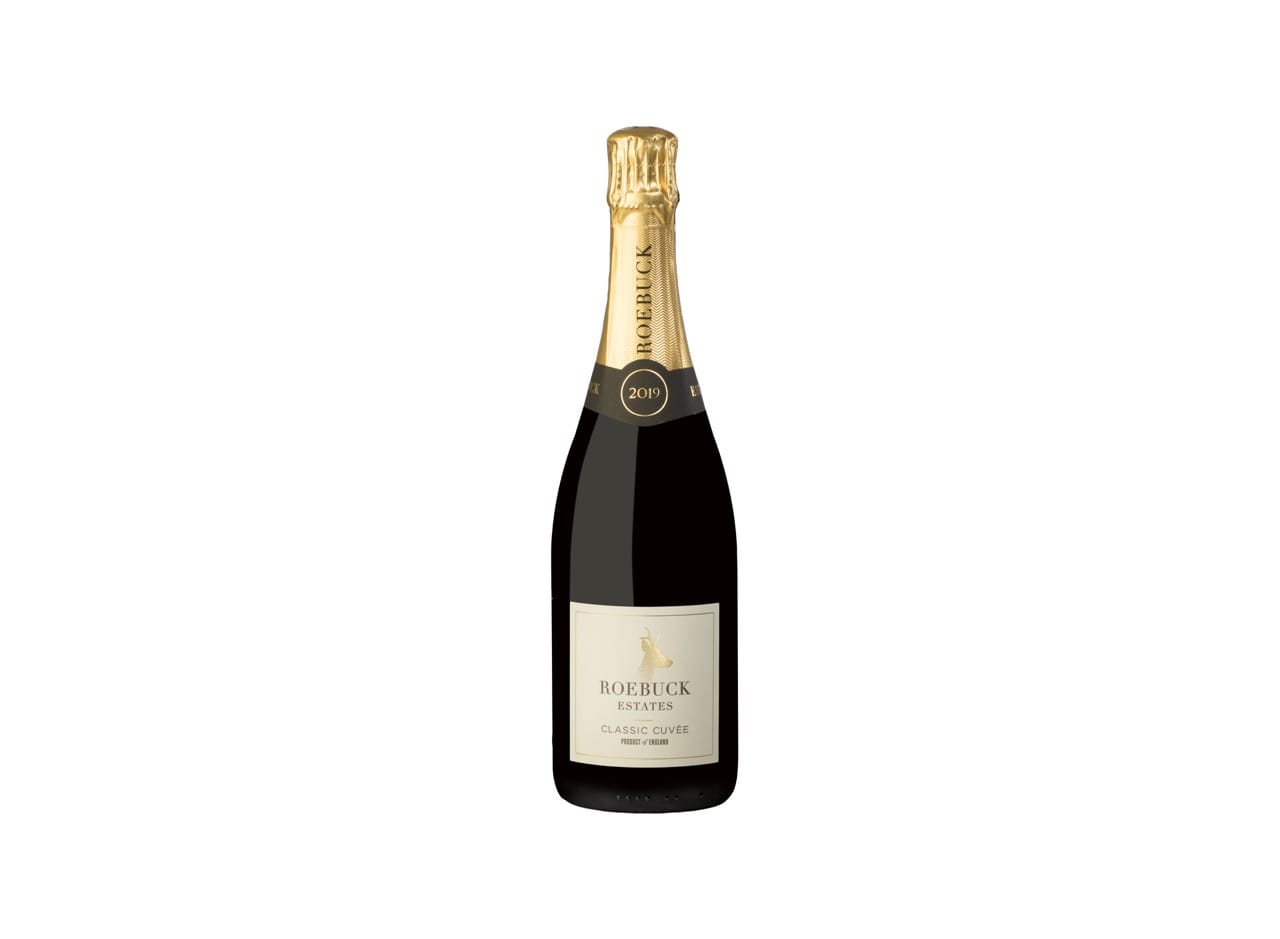
Sustainability and Innovation
What’s your long-term vision for sustainability in the winery, and how do you see the industry evolving in this regard?
We are called Roebuck as testimony to the Roe deer which roam locally, as we wanted a name that reflects nature and our local environment. We have a saying that, like the Roe deer itself, Roebuck aims to leave only the lightest footprint on its environment.
As a grower, we have an opportunity to really invest in nature and our practices reflect this. We know we are still farming at the end of the day, so we can’t not impact the environment, but setting the goal and imbedding this philosophy of impacting it as little as possible allows us to deliver on this.
We are very proud to be a founding member of the Sustainable Wines of Great Britain (SWGB) Certification Scheme, and we have a sustainability plan that focuses on three key areas: protecting soil health, promoting biodiversity, and reducing our carbon footprint. And to deliver on this ambition, we employed an in-house ecologist in 2023, and he has made a huge difference to how we approach encouraging biodiversity - introducing beehives, building bug hotels, planting wildflower meadows, installing bird and bat boxes, planting native trees and even building reptile and amphibian habitats.
Whilst we would like to think we are more advanced than many other English Wine Companies, I do feel that there is a real collective belief in the industry. We are a relatively new industry after all, and this means we have not got hundreds of years of always doing it a certain way. We can adapt and implement quickly as an industry, which I think is one of many exciting things about the English wine scene.
What new sustainability initiatives have you implemented in the past year, and what motivated those changes?
We are about to build our first ever pond. According to our Ecologist, it is the single biggest thing we can do to improve biodiversity in the vineyard. There has been a huge amount of planning gone into it, researching and finding the right indigenous plant species. It will also give us the perfect opportunity to bring local groups into the vineyard so we can explain what and why we are doing this.
People and Stories
Can you share a funny or heartwarming moment that happened in the vineyard or winery this year?
As part of our approach to sustainability in the vineyards, we have taken a very hands-on approach to encouraging biodiversity in the vineyard. We have 250k bees, we practice regenerative viticulture, we have bird and bat boxes, and wildflower meadows, we no longer use herbicides, and we encourage reptiles and amphibians, as well as mammals such as rabbits, hares, and badgers into the vineyard. What we didn’t expect was that this approach would also attract wasps, particularly around harvest time!
This caused a bit of an uncomfortable time for our harvest pickers, who weren’t so enamoured by our in-house ecologist’s view that this was all part and parcel of our “the healthier and more natural the vines, the better the wines” approach. To counteract this, we put in divergent feeding to distract the wasps away from the pickers.
What is the most unusual or unexpected question a visitor has asked on a winery tour or tasting?
I was recently explaining about our award-winning 2018 Rosé de Noirs and how the high level of Pinot Noir provides real notes of strawberries and raspberries in the wine. Someone put their hand up and said, ‘I thought you only made your wine with grapes, I didn’t realise you also put strawberries in’.
Clearly there was a bit of laughter but, importantly, it serves as a good reminder that, as an industry, we need to do a good job of bringing consumers into it. We must be careful not to create an impregnable view of wine, which leaves people not wanting to ask these questions about wine; or, even worse, not interested in learning more.
Have you had a moment where a visitor or customer shared how your wine touched their life in a meaningful way? How did that affect you?
We recently sold a selection of Roebuck wines to someone for their wedding. This is not unusual, however I received a letter a few weeks later from the father of the bride. He told me that he had bought the wine and, as the bride and groom’s family didn’t know each other, they had decided to set up a series of dinners in the lead-up to the wedding, during which they would also do a wine tasting. They tasted three different wines at the first dinner, took the winner to the second dinner, adding another two wines in too, and carried this on – through a series of six dinners.
He told me that Roebuck had won the ‘best wine’ at the first dinner – and went on to win at every dinner in the series! He explained how well the two families had bonded over this period, and how special the role was that Roebuck played in the ‘big day’ as a result.
We have a vision to craft wines that are a celebration of growing and turn every gathering into a vintage moment. If this story doesn’t sum that up, then I don’t know what does!
Local Recommendations
I would highly recommend the Park House, Hotel & Spa in Midhurst - which is beautiful country house hotel set in an area of outstanding natural beauty, as well as The Pig, in the South Downs, which is located within the small hamlet of Madehurst, very close to our Roman Villa vineyard. It is famed for its 25-mile menu and home to one of the largest kitchen gardens.
For more information about Roebuck Estates, please visit roebuckestates.co.uk.

